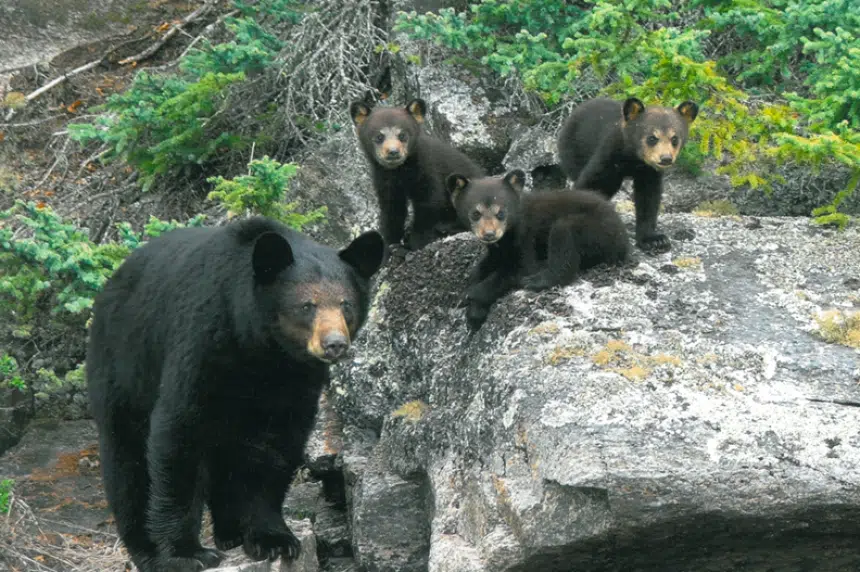The recent break-and-enter in Stanley Mission by not your average bear didn’t come as a surprise to Darrell Crabbe.
“I’ve seen them do a lot of things,” said Crabbe, the executive director of the Saskatchewan Wildlife Federation. “You’d be surprised at how adept they are. If they decide they want to get into somewhere, they’re like a raccoon: If they want to get in, they’ll get in …
“I’ve been in locations where bears have tried to come into the cabin with us because they smell the bacon cooking. They’re quite innovative.”
And apparently they’re quite visible this year.
Crabbe said he has been told by Ministry of Environment officials the bear population in Saskatchewan has been increasing in recent years. That has resulted in more bear sightings by members of the public.
In fact, Crabbe said he heard that a bear had been spotted at Diefenbaker Lake — and he couldn’t remember anyone seeing a bear at that location in all the years he has been with the federation.
“Hunting pressure on bears has decreased over the last few years,” Crabbe said. “But certainly this year with the COVID-19 issue, a lot of bear hunting did not go on this spring which does usually harvest a lot of those more aggressive bears that might be around or ones that want to travel further.”
There have been reports of bears getting closer to people — such as the individuals who bailed out of the home in Stanley Mission when that bear wandered in — and that has caused consternation for conservation officers.
The experts have suggestions for the public, such as storing garbage in secure receptacles and not leaving food in places where bears can sniff it out.
“Bears are usually quite content to just go about their business,” Crabbe said. “Like anything else, only a couple of things drive them — and certainly food being at the top of the list.
“They’re relatively curious, but they don’t want to be around people any more than people want to be around them. A lot of times, it’s just mistaken identity.
“They’re curious and their eyesight isn’t that terrific. Everyone is always told to make lots of noise around bears and that will usually convince them to move off and pursue food in another location.”
The other suggestion Crabbe had for those who see a bear is to avoid the animal altogether and call conservation officers.
“We have to respect (bears) and make sure we do what we can to move them along because they’re part of a natural system,” Crabbe said. “We want to make sure they respect humans and livestock and everything else.”
More people, not more bears behind sightings at Crooked Lake
One conservation officer says bear sightings in the Crooked Lake area are not an indication of more bears this season.
“There’s always been a significant bear population in the whole Qu’Appelle Valley,” said Mario Gaudet, a conservation officer for the Melville area. “It might just be some extra sightings people are seeing.”
Gaudet said black bears are frequently in the Crooked Lake area and east of Fort Qu’Appelle throughout the year. He noted there haven’t been more calls this year than in the past.
Rather than an increase in bear activity, Gaudet suggested an increase in humans around the area may be the reason bears seem more prevalent this year.
He said there are more people visiting campgrounds and provincial parks this summer due to COVID-19 restrictions.
“I think it’s just maybe people are definitely getting out more recently and are somewhat limited in the places they can go and so they’re seeing more wildlife, including bears,” Gaudet said.
Gaudet said there haven’t been any reports of bear confrontations in the area yet in 2020.
“Mostly, if there’s a problem bear, it’s with garbage,” he said.
When conservation officers do receive a report of a bear sighting, Gaudet said they respond if there is a likely chance of confrontation. If the situation is threatening, conservation officers in the area will respond right away.
“We do have bear traps,” he said. “We trap them sometimes. Sometimes they need to be dispatched; that’s just the way it works depending on the situation.”
— With files from 980 CJME’s Libby Giesbrecht











